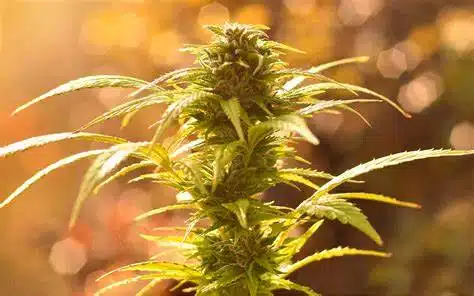Can Weed Replace Traditional Medicine?
Medicine is used to treat, prevent, or manage a variety of health conditions and diseases. It can be used to alleviate symptoms, cure illnesses, or slow down the progression of a disease. Medicine can be prescribed by a healthcare professional, such as a doctor or nurse practitioner, and can be taken in various forms, including pills, injections, topical creams, and more. The use of medicine is an important part of modern healthcare and has greatly improved the quality of life for many people around the world.
We are often asked whether cannabis can replace traditional medicine. While cannabis has been used for medicinal purposes for centuries, it is important to understand that it is not a cure-all and should not be used as a replacement for traditional medicine without consulting a healthcare professional. However, there are many ways in which cannabis can be used to complement traditional medicine and provide relief for a variety of conditions.
Cannabis for Pain Management
One of the most common uses of cannabis is for pain management. Cannabis contains compounds called cannabinoids, which interact with the body’s endocannabinoid system to reduce pain and inflammation. THC, the psychoactive compound in cannabis, is particularly effective at reducing pain, while CBD, a non-psychoactive compound, has anti-inflammatory properties that can also help with pain management.
Cannabis for Anxiety and Depression
Another area where cannabis can be helpful is in the treatment of anxiety and depression. THC has been shown to have mood-elevating properties, while CBD has been shown to have anxiolytic (anti-anxiety) effects. However, it is important to note that cannabis can also have negative effects on mental health, particularly in high doses or in individuals with a history of mental illness.
Cannabis for Cancer Treatment
Cannabis has also been studied for its potential use in cancer treatment. THC has been shown to have anti-tumor properties, while CBD has been shown to enhance the effectiveness of chemotherapy. However, more research is needed in this area to fully understand the potential benefits and risks of using cannabis as a cancer treatment.
Cannabis for Neurological Disorders
Cannabis has also been studied for its potential use in treating neurological disorders such as epilepsy, multiple sclerosis, and Parkinson’s disease. THC has been shown to have anticonvulsant properties, while CBD has been shown to have neuroprotective properties. However, more research is needed in this area to fully understand the potential benefits and risks of using cannabis for neurological disorders.
Cannabis for Sleep Disorders
Cannabis can also be helpful as a medicine for individuals with sleep disorders such as insomnia. THC has been shown to have sedative properties, while CBD has been shown to have anxiolytic properties that can help with sleep. However, it is important to note that cannabis can also have negative effects on sleep, particularly in high doses or in individuals with a history of sleep disorders.
Cannabis for Appetite Stimulation
Cannabis has also been studied for its potential use in appetite stimulation, particularly in individuals with conditions such as HIV/AIDS or cancer. THC has been shown to have appetite-stimulating properties, while CBD has been shown to have anti-nausea properties that can help with appetite stimulation.
Cannabis for Skin Conditions
Cannabis can also be helpful for individuals with skin conditions such as eczema or psoriasis. CBD has been shown to have anti-inflammatory properties that can help with skin inflammation, while THC has been shown to have analgesic properties that can help with skin pain.
Cannabis for Addiction Treatment
Finally, cannabis has been studied for its potential use in addiction treatment. THC has been shown to have anti-addictive properties, while CBD has been shown to have anti-anxiety properties that can help with addiction treatment. However, more research is needed in this area to fully understand the potential benefits and risks of using cannabis for addiction treatment.
In conclusion, while cannabis can be helpful for a variety of conditions, it should not be used as a replacement for traditional medicine without consulting a healthcare professional. If you are interested in using cannabis for medicinal purposes, it is important to do your research and consult with a knowledgeable healthcare professional. And if you’re looking for a reliable online dispensary to purchase your cannabis products, be sure to check out West Coast Releaf Online Dispensary for a wide selection of high-quality buds, concentrates, edibles, vapes, tinctures, and more.
Conclusion
Conclusion
While cannabis has been shown to have many potential health benefits, it can also have negative effects on health, particularly when used in high doses or over a long period of time. Some potential negative effects of cannabis use include impaired memory and concentration, increased heart rate, and respiratory problems.
Additionally, cannabis can have negative effects on mental health, particularly in individuals with a history of mental illness.
On the other hand, medicine can also have potential negative effects on health, particularly when used improperly or in high doses. Some potential negative effects of medicine use include side effects such as nausea, dizziness, and headaches, as well as the risk of addiction or overdose.
It is important to note that the potential risks and benefits of using weed and medicine can vary depending on the individual and the specific condition being treated. It is important to consult with a healthcare professional before using any substance for medicinal purposes and to follow their recommendations for safe and effective use.
If you are interested in buying weed online and THC products, check out West Coast Releaf online weed dispensary and shop for your weed online and cannabis products at westcoastreleaf.co!













